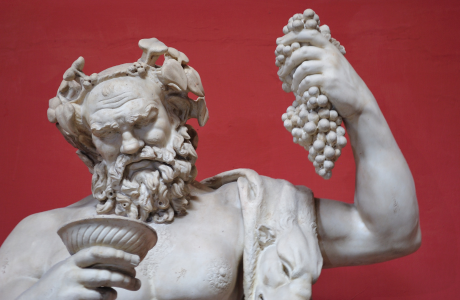I’ve had several conversations recently with Christians—and former Christians—about the Bible stories in which God appears to command or sanction genocide. For numerous people, it’s been a deal breaker as they’ve been unable to reconcile a God who IS love with a God who appears to endorse unloving things.
My Journey
I began wrestling with this about two decades ago. I resonated with Bible stories of battles and vengeance in my younger years. The stars of the stories were my heroes. Then, I began to feel uncomfortable with them and would skip over these descriptions, pretending they weren’t there—except they were. We need to face it. The Bible records some pretty awful stuff. As I matured, I observed inconsistencies between these portrayals and Jesus’ teaching.
I love Jesus and wouldn’t consider leaving my faith, but I needed to reconcile the irregularities I saw in scripture and the multiple questions that begin with “How could a loving God…” You can fill in the blanks.
Awful Examples
Consider Deuteronomy 20:16–18, in which Moses instructed the people, “However, in the cities of the nations the Lord your God is giving you as an inheritance, do not leave anything that breathes alive. Completely destroy them…as the Lord your God has commanded you. Otherwise, they will teach you to follow all the detestable things they do in worshipping their gods, and you will sin against the Lord your God.” In other words, I know you people lack self-control and might get led astray, so let’s kill everyone and remove all temptation!
The Hebrew word “destroy” means to devote something to God by eradicating it. We are outraged by the terrorism we witness in the world, yet here it is encouraged, indeed commanded, by God.
From Joshua chapter six onwards, we see the systematic destruction of thirty-one cities and their inhabitants – men, women, children, and all the animals. Entire towns were slaughtered with no terms of surrender and no chance to relocate to another land. And according to the author, God is right there cheering on the massacre. How can we reconcile these events with the God of love? Here’s what I learned.
Ancient Stories
As I’ve taught on many occasions, the world of three or four thousand years ago was very different from today. People were tribal, and the tribes often went to war. They viewed God as “on their side” and would give them victory over their enemies. We see this reflected many times in the scriptures. We still see this echoed in some Christian circles today where God hates all the same people they do, votes as they vote, and is against everything they are.
In ancient times, the role of women was to give birth because more babies made the tribe bigger, more prosperous, and better able to defend itself in battles. The men spent their time hunting, fighting, and participating in the early stages of the baby-making process.
Most tribal people had multiple gods and presented offerings to them, frequently with human sacrifices. Israel was different as it became increasingly monotheistic, and there were recurrent warnings to the people to remain faithful to the one true God and not to engage in pagan revelry. We must appreciate the Old Testament narrative through this framework.
The Tanakh
Our Jewish friends call the Old Testament the Tanakh. I like that name and frequently use it myself. The Bible is a collection of Hebrew books, first and foremost written from an Eastern perspective. That’s a challenge for Western people like myself, who’ve been raised to see things differently. Invariably, we see things as black or white, right or wrong. Our history has to be accurate, but Eastern thought is different.
Easterners tend to view history as stories with a meaning. The details can change over time to convey truth to people living in different circumstances. We see these changes reflected in the Tanakh. Jews see the sacred text as the fluid narrative of the relationship between humans and the Source of all creation. The Tanakh tells the ever-evolving story without editing. And like all evolving narratives, the lines between the “players” get blurred. The attributes of humans and the divine “bleed” into each other because the relationship is vital. The Tanakh is relationship-centred. And it continues to be played out today, demonstrating the ongoing relevance of our faith in the modern world.
A Question Book
The Tanakh also observes how people sometimes justify their actions and consequences. It is not a book of answers; it is written to provoke questions. When you read the genocide stories, what questions come to mind?
- Why do you think the people acted in the way they did?
- Could trauma hold the key? Under specific pressures and with enough accumulated trauma, even good people will do horrific things.
- How would you suggest they act?”
- How would you act in similar circumstances?
- What would Jesus do?
A question has power that surpasses the answer. My Jewish friend Tal says, “The Tanakh and God are supposed to be argued with. It is a good conflict that, if done with respect, causes growth.” He continues, “Spots within the Tanakh that are completely good or evil are rare. And that’s why I love the narrative. It reflects our life experiences more, which is very messy. After all, the name Israel means ‘one who wrestles with God,’ and that gets messy.”
Christians should respectfully discuss the scriptures and listen to other people’s insights. Scripture has done its job if the discussion causes powerful positive change.
Important Lessons
In chapter 10 of Paul’s first letter to the Corinthians, he gives insight into the Christian purpose of the Tanakh: These things occurred as examples to keep us from setting our hearts on evil things as they did. (6). These things happened to them as examples and were written down as warnings for us. (11)
Followers of Jesus need to read these stories in the Tanakh and learn the lessons that still apply today.
Jesus’ Example
In the fullness of time, God was born into the human family to show us what he was REALLY like. Jesus shows us a much better way. Consider his words in the sermon on the mount:
“You have heard that it was said, ‘Love your neighbour and hate your enemy.’ But I tell you, love your enemies and pray for those who persecute you, that you may be children of your Father in heaven. He causes his sun to rise on the evil and the good and sends rain on the righteous and the unrighteous. If you love those who love you, what reward will you get?
And so, love your enemies, and don’t kill them. That’s Jesus’ way, as he said, “The Son of Man did not come to destroy people’s lives but to save them.”
Further Study
Digging Deeper #72: The Wrath of God
Digging Deeper #84: The Bible’s Genocide Stories















